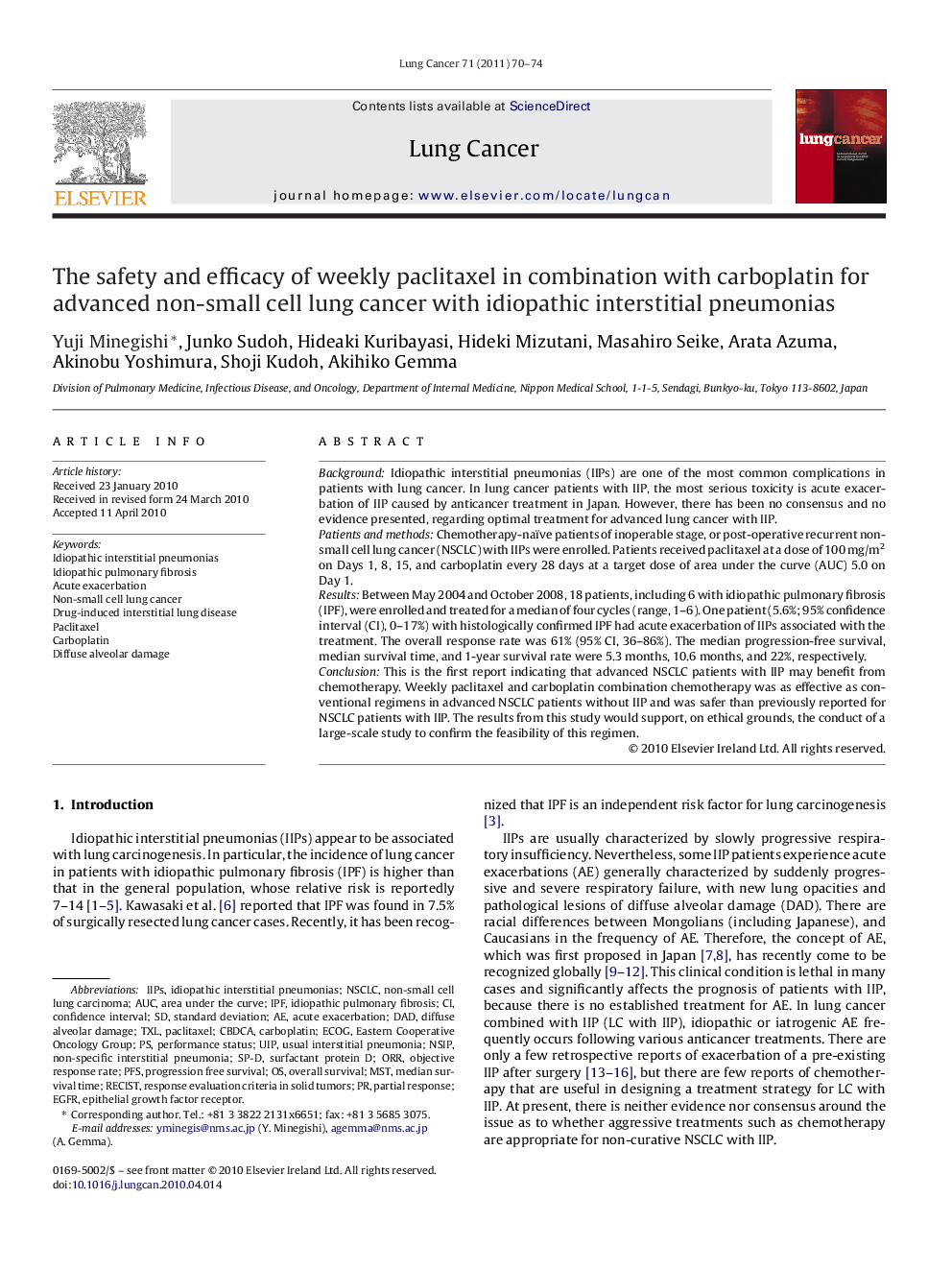| Article ID | Journal | Published Year | Pages | File Type |
|---|---|---|---|---|
| 2142202 | Lung Cancer | 2011 | 5 Pages |
BackgroundIdiopathic interstitial pneumonias (IIPs) are one of the most common complications in patients with lung cancer. In lung cancer patients with IIP, the most serious toxicity is acute exacerbation of IIP caused by anticancer treatment in Japan. However, there has been no consensus and no evidence presented, regarding optimal treatment for advanced lung cancer with IIP.Patients and methodsChemotherapy-naïve patients of inoperable stage, or post-operative recurrent non-small cell lung cancer (NSCLC) with IIPs were enrolled. Patients received paclitaxel at a dose of 100 mg/m2 on Days 1, 8, 15, and carboplatin every 28 days at a target dose of area under the curve (AUC) 5.0 on Day 1.ResultsBetween May 2004 and October 2008, 18 patients, including 6 with idiopathic pulmonary fibrosis (IPF), were enrolled and treated for a median of four cycles (range, 1–6). One patient (5.6%; 95% confidence interval (CI), 0–17%) with histologically confirmed IPF had acute exacerbation of IIPs associated with the treatment. The overall response rate was 61% (95% CI, 36–86%). The median progression-free survival, median survival time, and 1-year survival rate were 5.3 months, 10.6 months, and 22%, respectively.ConclusionThis is the first report indicating that advanced NSCLC patients with IIP may benefit from chemotherapy. Weekly paclitaxel and carboplatin combination chemotherapy was as effective as conventional regimens in advanced NSCLC patients without IIP and was safer than previously reported for NSCLC patients with IIP. The results from this study would support, on ethical grounds, the conduct of a large-scale study to confirm the feasibility of this regimen.
